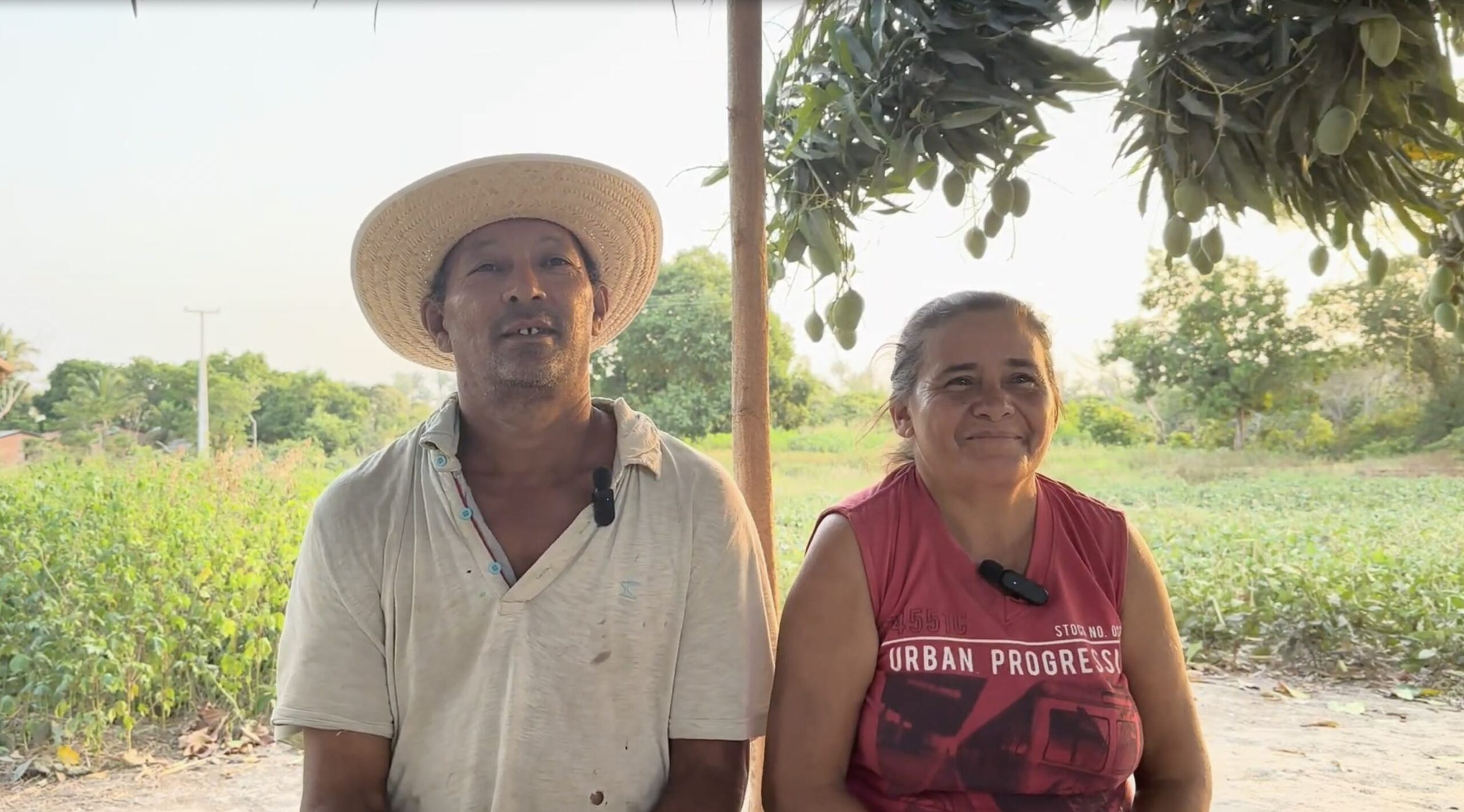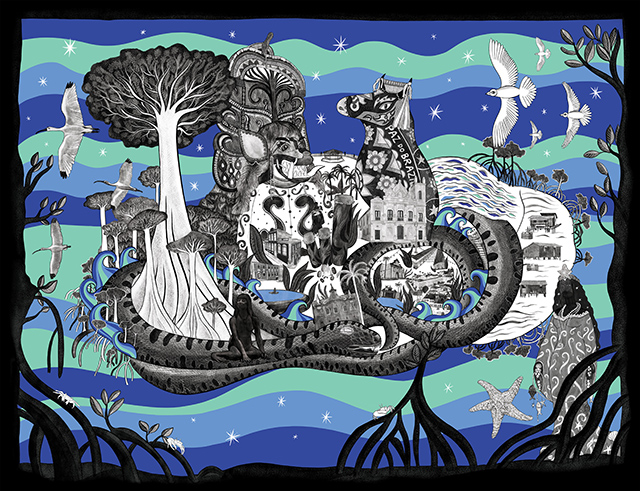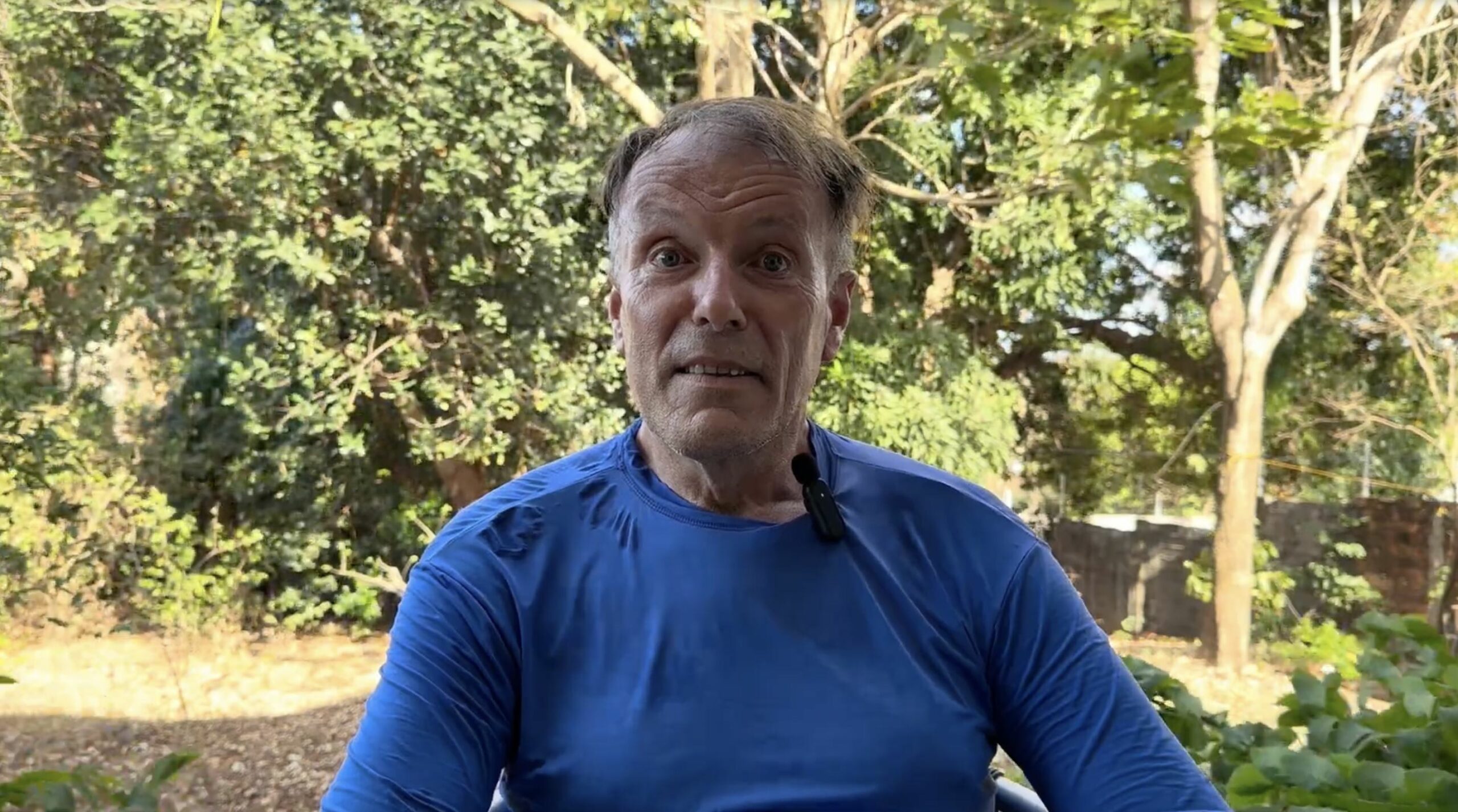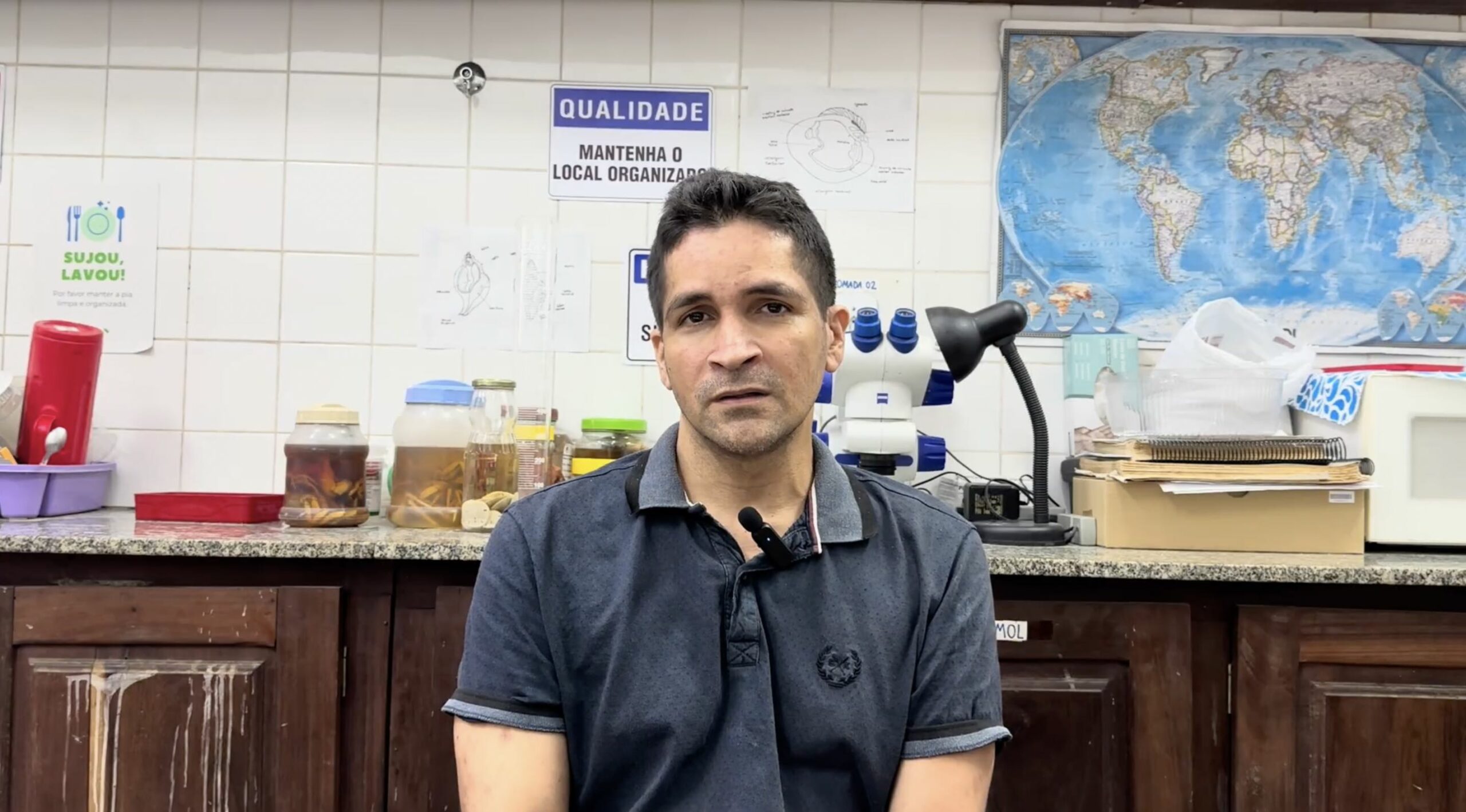
Tabocal, Maranhão – In this village on the banks of the Miarizão River, residents must constantly adapt to the ecological changes affecting their environment. Raimundo Nonato Costa de Souza and his wife Maria Auxiliadora Costa Barbosa talk about their daily lives as farmers and the challenges they face.
Subsistence mixed farming
The couple work together on their land: beans, maize, okra, sweet peppers and green vegetables grow in their vegetable garden. Maria takes care of the garden, while Raimundinho is responsible for field crops such as beans and maize. Their agricultural model is based on self-sufficiency and mutual aid. ‘We make everything, we produce everything. Everything is ours.’
Integrated rice and fish farming
The couple has also experimented with an integrated rice and fish farming system, set up through a project led by local agronomists. Raimundinho explains: « We fill the pond, which has a deeper part and a shallower part… When we plant the rice, it grows. We then raise the water level, and the fish come to feed on the rice, without us having to add any feed. » He emphasises that this gives the fish a superior taste.
Increasingly severe climate disturbances
Climate change is now palpable: ‘It hasn’t rained for four months now, with a horrible wind blowing dust around.’ This prolonged drought is affecting crops: ‘We have about twenty chilli peppers that can no longer bear fruit because of the temperature.’
Despite regular irrigation, the plants are suffering: ‘Any plant that exceeds 36 degrees can no longer bear fruit.’ Raimundinho adds: « Even for us, there are times when the heat is terrible, we have to wash all the time, drink water, and we always have this bad feeling in our bodies. ‘
More resistant pests
The couple has also noticed an increase in harmful insects: ’Some pests that were once rare are now everywhere: ‘The beans are full of scale insects… This species of cochineal has appeared here and is destroying everything.‘ Raimundinho laments: ’If we don’t use a product to eliminate them, the plant won’t be able to bear fruit. »
A life suspended by floods
During floods, the family has to raise the floors of their house using wooden planks and beams: ‘That’s the strategy: stay above the water.’ In 2009, the water remained for more than two months: « Two months for us here, in these conditions, is an eternity. ‘
Each flood requires a major clean-up once the water has receded: ’We have to wash, sterilise, bleach and clean everything to get back to normal.‘ Despite the fatigue, they persevere: ’Yes, but we have to do it, there’s no other option. We have to fight. » ‘
Pollution and contamination of the river
Raimundinho has also noticed a deterioration in water quality: ’The river is becoming very muddy. This water even prevents us from watering the plants, because it sometimes sticks to the plants and burns them. ‘ He explains that the water contains ’a very large amount of products, fertilisers from rice fields, phosphorus, nitrogen, as well as sewage from towns.‘
He deplores the lack of monitoring: ’No, there is no water monitoring here. »
A message for the future
In conclusion, Raimundinho shares a lucid and solemn warning:
« If we do nothing, I think that in a few years, those who remain will no longer be able to see a lemon tree or a juçara, because the temperature will have destroyed everything. ‘
And his wife Maria adds emotionally: ’This is the first time in my life that I’ve done this… spoken… it’s a positive thing, a hope that things can improve. »
Testimonies from the same panel


